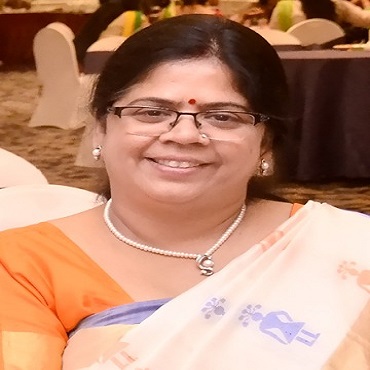Scientific Program

Nisha M Pandey
King George's Medical University, India
Title: Revisiting vanprasth ashram- A road to healthy aging
Biography:
Dr. Nisha M Pandey is currently serving as Asst. Professor (Non-medical Research), Department of Geriatric Mental Health (DGMH), King George’s Medical University (KGMU) UP, Lucknow. She has experience more than 21 years in the field. She did her Post Doctoral Fellow (ICSSR) from Department of Geriatric Mental Health, King George’s Medical University UP, Lucknow from March 8, 2013 to March 7, 2015. She is since May 2010 coordinating and facilitating geriatric mental health in-house training program. Exp. = 6 yrs. Visiting faculty and teaching BBA/MBA students in Authorised Learning Centre of Punjab Technical University’s during 2009-2015. Resource person at Maharishi University of Information Technology, Lucknow since 2015.
Abstract
In India, with the advancements we see every day in every walk of life, a number of challenges are cropping up for the most vulnerable and marginalised groups of the society, one of which is also the elderly. The challenges that are faced by the geriatric population, are often related to loss of livelihood and restricted finances as well as the feeling of declining respect, wellbeing and quality of life. Most of these risks directly affect the mental health of an individual.
We all know that risks related to primary aging can be tough to prevent or cure for but through proper and judicious interventions an individual can be protected to a large extent from threats of secondary aging and remain mentally balanced and sound throughout the life.
That begs the question of what can it be and how can a person protect himself/herself to lead a path of healthy ageing. This paper will also examine the strategies to strengthen mental health in old age and How anyone can live healthily till the last day of his/her life.
We shall revisit Indian Vedic belief system, particularly the Ashrama system to find viable responses to these queries. Vanprastha Ashrama was well-known and seen as the golden period of a person's life wherein they focussed on their self and gave up a householder's duty. This was the stage that advocated living for the society, finding yourself and exploring your spiritual salvation by giving up and detaching yourself from all the accessories of life and household responsibilities to pass it on to the successive generation.
This was seen as the best way to live a peaceful and healthy life. Thus, this paper would cover this notion in the light of the 21st century with all its issues and implications in view of the evidences existing in literature and case vignettes.
- Precision Medicine
- Evidence-based medicine
- Precision Medicine Initiative
- Precision Medicine and Personalized medicine
- Precision Medicine and Public health
- Precision Medicine and Cancer
- Precision Medicine and Bioinformatics
- Precision Medicine and Clinical Trials
- Precision Medicine and Molecular Diagnostics
- Precision Medicine and Pharmacogenomics
- Big Data for Precision Medicine
- Big Data Analytics
- Big Data Analytics in Healthcare and Medicine
- Big Data in Bioinformatics, Multimedia, Smartphones
- Challenges in Big Data
- Opportunities in Big Data

